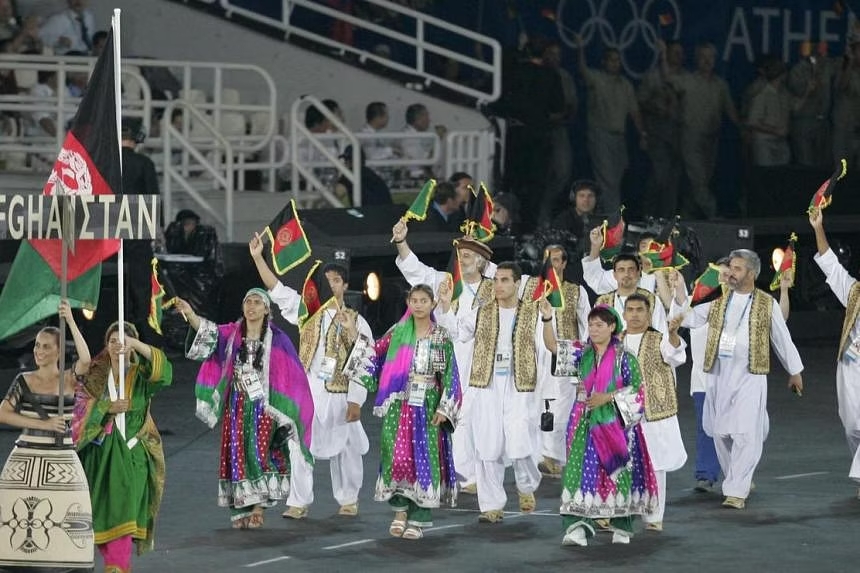
Afghanistan’s first female Olympian calls for Games ban over Taliban’s rights record
- Uncategorized
- April 15, 2024
- No Comment
- 94
GENEVA (Agencies): Friba Rezayee, the first woman to represent Afghanistan at the Olympics, has been appalled by the treatment of women since the resurgence of the Taliban and is now campaigning for the country to be kept out of the Paris Games. Rezayee, a judoka who competed at the 2004 Olympics in Athens, has called on the International Olympic Committee (IOC) to ban Afghanistan due to the Taliban’s human rights record. She has argued that under a such ban, Afghan women should still be allowed to participate as part of the IOC Refugee Olympic Team. “Given tons and tons of evidence about the Taliban, about their brutal treatment of women and children, they are very dangerous,” Rezayee, who now lives in Vancouver, said. “If the IOC allows them to enter the Olympics at the heart of Europe, in Paris in 2024, it’s very dangerous for the people.”
Zabihullah Mujahid, spokesman for the Taliban administration, declined to comment. The Taliban ––– who say they respect women’s rights in line with their interpretation of Islamic law and local customs –––have closed girls’ high schools and placed travel restrictions on women without a male guardian and restricted access to parks and gyms. Asked to comment on Rezayee’s call, the IOC referred to a statement made last month by James Macleod, its Director of National Olympic Committee Relations and Olympic Solidarity. Macleod said at the time that the IOC was in dialogue with Afghanistan’s National Olympic Committee (NOC) and sport authorities “with the aim to reverse the current restrictions on access to sport for women and young girls in Afghanistan.” He said that although the IOC acknowledged different views on whether Afghanistan’s NOC should be suspended, it “doesn’t believe that isolation of the Afghan sporting community at this time is the right approach.” Separately, the IOC said that athletes needed a refugee status confirmed by the United Nations refugee agency to be eligible for the IOC Refugee Olympic Team.
‘Stronger than men with guns’:
Rezayee was 18 when she stepped onto the mat in Athens in an historic moment for her country. She was convinced her pioneering role would help advance women’s rights. “I actually believed that we would only progress from here,” she said. “When I returned from Athens, I stayed in Afghanistan and I wanted to stay in Afghanistan. I continued my training because I saw the important changes it was making in every single girl’s life.” But her hopes of seeing her countrywomen gain more rights were crushed when the Taliban seized power in August 2021. “It feels like whatever I did to support women’s rights and gender equality back in 2004, it has been all undone by the IOC and by the Taliban and people who tolerate the Taliban,” Rezayee said.
In February, a United Nations expert described the Taliban’s disrespect for the rights of women and girls as “unparalleled in the world,” and said their takeover had “exacerbated a high prevalence of gender-based violence against women and girls.” The IOC suspended Afghanistan’s NOC in 1999, and the country was barred from the 2000 Sydney Games. Afghanistan was reinstated after the fall of the Taliban, in time for Rezayee to compete in Athens. Rezayee, who left Afghanistan in 2011 and settled in Canada, founded Women Leaders of Tomorrow, a non-profit that provides scholarships and education programs for Afghan women, including athletes. The 38-year-old has received threats for her activism. “I believe that my principles and the principles of human rights, women’s rights and women’s dignity are stronger than men with guns,” she said.
...





